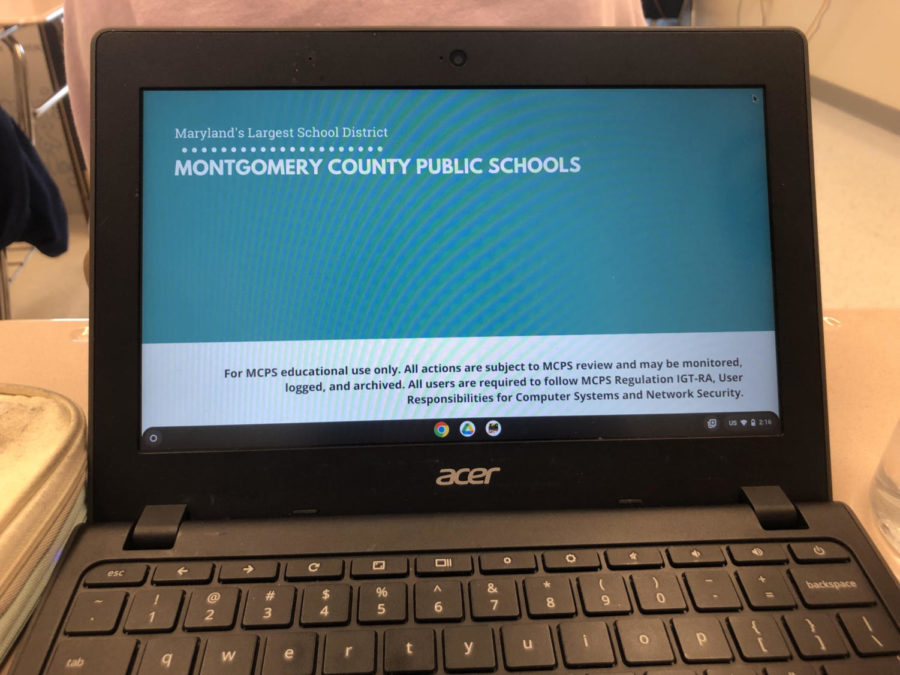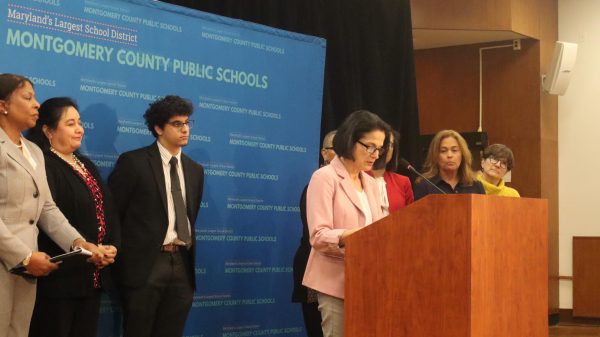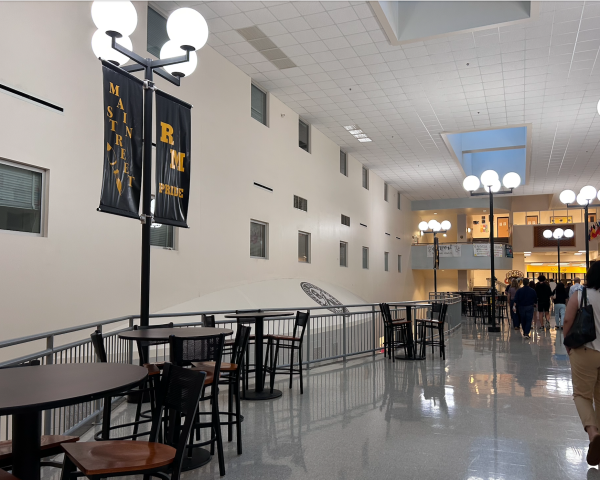MCPS chromebooks’ short lifespans pose issues for students
Many students across MCPS rely on using county-issued Chromebooks to complete schoolwork.
June 9, 2023
On the heels of the COVID-19 pandemic and the ushering of a virtual school year, students all across Montgomery County have been accelerated into a more digital learning setting. The county has already taken a step into this digital age, distributing 40,000 Chromebooks to those who are not able to obtain one on their own.
Many students feel that this change has made them rely more on their Chromebooks. “Introducing online learning has definitely increased the usage of Chromebooks, and now they are used for many assignments and myMCPS Classroom is more popular than ever,” sophomore Heather Feuerstein said.
Other students also see the benefits of increased technological incorporation in classrooms. It allows students to access more information and enables them to work to their individual needs. It also saves time and money with students no longer having to pay for textbooks that aren’t fully used or might not be completely up-to-date. Furthermore, it can allow teachers to create more in-depth and inquiry-based assignments for their students to explore at their own pace.
In addition, students have expressed positive views about Chromebook usage. “I personally believe the increased Chromebook usage has had a positive change, especially when writing essays and doing projects. It is much easier for me to type than write, and my hand doesn’t hurt when I’m done. It is also more efficient as I can type much faster than I can write,” Feuerstein said.
With an increased reliance on Chromebooks, however, comes several flaws that have been popping up locally and across the nation. A 2023 report from the U.S. Public Interest Research Group Education Fund found that the short lifespan of Chromebooks, compounded by a lack of support repair and a built-in end for software support, often leaves schools with failing devices that saddle districts with additional costs.
Faltering Chromebooks have been a recurring issue for students at RM as well. “My old Chromebook had a bad battery life but I swapped it out. That Chromebook had heating issues and some of the keys and the chassis began to warp and it got hot enough to burn me,” sophomore Dinh Cao said.
“It annoys me that Chromebooks continue to be produced with these malfunctions and that these issues are not generally addressed by Google,” Feuerstein said.
This issue may have various implications, considering that many school districts around the nation, including MCPS, chose to provide students with Chromebooks due to their relatively cheap costs and their relative ease in building a one-to-one learning environment during the pandemic.
While many school districts are starting to face the costs of these faltering Chromebooks, such as Virginia’s Fauquier County Public Schools having to pay around $80,000 a year to sustain Chromebooks, districts nationwide are also pushing for immense changes to combat these issues.
Some districts work with multiple parties to ensure no delay in receiving spare parts, according to EdWeek. Other districts, including MCPS, have revamped their county website to include sections dedicated to technological support. The MCPS web page serves as a section for the Office of Strategic Initiatives technology team.
However, RM students see more improvements that can be made. “[Some ideas include] investing in newer technology, and spending more of the budget on newer Chromebooks,” Cao said.













